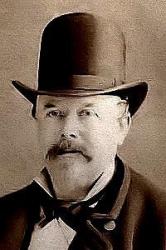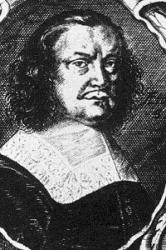
1667 - 1724 Person Name: Bath. Crasselius Topics: Tilføiede Salmer; Added Hymns; Andre Søndag I Advent Til Aftengudstjeneste - Til Sekund Tekstrækkes Lektie; Second Sunday in Advent; Første Søndag efter Hellig 3 Kongers Dag Til Høimesse; First Sunday after Epiphany; Andre Søndag efter Hellig 3 Kongers Dag Til Høimesse -Til Sekund Tekstrækkes Evangelium; Second Sunday after Epiphany; Tredje Søndag efter Hellig 3 Kongers Dag Til Aftengudstjeneste; Third Sunday after Epiphany; Søndag Septuagesima Til Høimesse -Til Sekund Tekstrækkes Evangelium; Septuagesima Sunday; Første Søndag I Faste Til Høimesse -Til Sekund Tekstrækkes Evangelium; First Sunday in Lent; Andre Søndag I Faste Til Høimesse -Til Sekund Tekstrækkes Evangelium; Second Sunday in Lent; Marias Bebudelses Dag Til Høimesse; Annunciation; Skjærtorsdag Til Høimesse -Til Tredje Teksxtækkes Evangelium; Maundy Thursday; Fjerde Søndag efter Paaske Til Aftengudstjeneste - Til Sekund Tekstrækkes Epistel; Fourth Sunday after Easter; Andre Søndag efter Trefoldiheds Fest Til Høimesse -Til Sekund Tekstrækkes Evangelium; Andre Søndag efter Trefoldiheds Fest Til Høimesse -Til Tredje Teksxtækkes Evangelium; Second Sunday after Trinity Sunday; Second Sunday after Trinity Sunday; Fjerde Søndag efter Trefoldiheds Fest Til Høimesse; Fjerde Søndag efter Trefoldiheds Fest Til Høimesse -Til Tredje Teksxtækkes Evangelium; Fourth Sunday after Trinity Sunday; Fourth Sunday after Trinity Sunday; Trettende Søndag efter Trefoldiheds Fest Til Høimesse -Til Sekund Tekstrækkes Evangelium; Thirteenth Sunday after Trinity Sunday; Tjuefjerde Søndag efter Trefoldiheds Fest Til Høimesse -Til Sekund Tekstrækkes Evangelium; Twenty fourth Sunday after Trinity Sunday; Efterfølgelse, Jesu; Obedience of Jesus; Heiliggjørelse; Sanctification; Hengivelse til Jesus; Devotion to Jesus; Legemet I Herrens Tjeneste; The Body in the Lord's Service; Næstekjærlighed; Charity; Renhed; Purity; Sagtmodighed; Meekness; Taalmodighed; Patience; Ydmyghed; Humility Alterer of "Hellig' Jesus, Renheds Kilde" in Salmebog for Lutherske Kristne i Amerika Crasselius, Bartholomäus, son of Johannes Crasselt, sheepmaster at Wemsdorf near Glauchau, Saxony; was born at Wernsdorf, Feb. 21, 1667. After studying at Halle, under A. H. Francke, he became, in 1701, pastor at Nidda, in Wetteravia, Hesse. In 1708 he was appointed Lutheran pastor at Düsseldorf, where he died Nov. 30, 1724, after a somewhat troubled pastorate, during which he felt called upon to testify strongly and somewhat bitterly against the shortcomings of the place and of the times (Koch, iv. 418-421; Allg. Deutsche Biographie, iv. 566-67; Bode, p. 55; manuscript from Pastor Baltzer, Wernsdorf; the second dating his call to Dusseldorf 1706). Of the 9 hymns by him which Freylinghausen included in his Geistreiches Gesang-Buch, 1704, two have been translated:—
i. Dir, dir, Jehovah, will ich singen. Prayer. A hymn of supplication for the spirit of grace rightly to praise and worship God, founded on St. John, xvi. 23-28, the Gospel for Rogation Sunday. First published in the Geistreiches Gesang-Buch &., Halle, 1697, p. 587, in 8 stanzas of 6 lines. Repeated as No. 291 in Freylinghausen's Gesang-Buch, 1704, and since in almost all collections, as in the Berlin Geistliche Liedersegen. ed. 1863, No. 936.
The well-known tune (known in England as Winchester New as reduced to L. M. in Hymns Ancient & Modern, No. 50) which appeared with this hymn in Freylinghausen, 1704, is altered from a melody to “Wer nur den lieben Gott lasst walten," in the Musicalisch Handbuch der Geistlichen Melodien, Hamburg, 1690. See L. Erk's Choralbuch, 1863, No. 63, and p. 247; also No. 261. The common, but erroneous ascription of this tune to Crasselius arose from confusion between the authorship of the tune and the words. There is no evidence that Crasselius wrote any tunes.
Translations in common use:—
1. Jehovah, let me now adore Thee, a good and full translation by Miss Winkworth, as No. 117, in her Chorale Buch for England, 1863, set to the 1704 melody.
2. To Thee, 0 Lord, will I sing praises, in full, by Dr. M. Loy, in the Evangelical Review, Gettysburg, July 1861, and as No. 216 in the Ohio Lutheran Hymnal, 1880.
Other translations are:—
(i) "To Thee, Jehovah, I'll be singing," in the Supplement to German Psalmody, ed. 1765, p. 41, and in Select Hymns from German Psaltery, Tranquebar, 1754, p. 72. (2) "Draw me, O Father, to the Son," a translation of stanza ii., by P. H. Molther, as No. 185 in the Moravian Hymn Book, 1789. In the ed. of 1886 it is enlarged to 3 stanzas by the addition of the translation of stanzas i. and viii., and in this form it begins:—“To Thee, Jehovah, will I sing." (3) "To Thee, O Lord, I come with singing," by Miss Burlingham, in the British Herald, April, 1866, p. 248, repeated as No. 402 in Reid's Praise Book, 1872.
ii. Erwach, 0 Mensch, erwache. Lent. Appeared in Freylinghausen's Gesang-Buch, 1704, No. 266, in 4 stanzas of 9 lines. Included in Bunsen's Versuch, 1833, No. 298, and Allgemeine Gesang-Buch 1846, No. 13. Translated as "Awake, O man, and from thee shake," by Miss Winkworth, 1855, p. 61.
The hymn, "Heiligster Jesu, Heiligungsquelle," ascribed to Crasselius, is noted under J. v. Lodenstein. See also "Hallelujah! Lob, Preis und Ehr." [Rev. James Mearns, M.A.]
--John Julian, Dictionary of Hymnology (1907)
Bartholomäus Crasselius


 My Starred Hymns
My Starred Hymns





